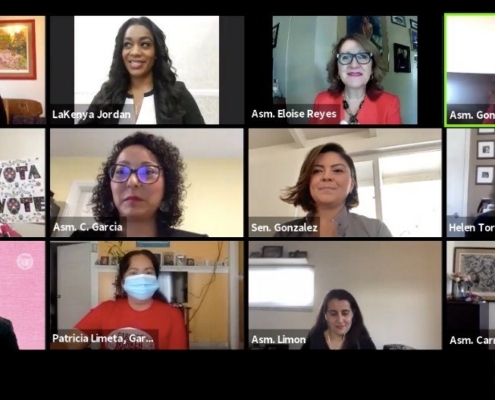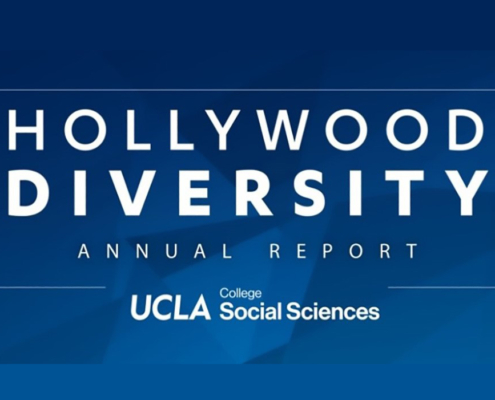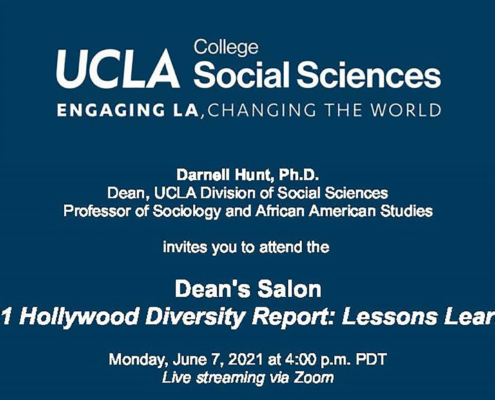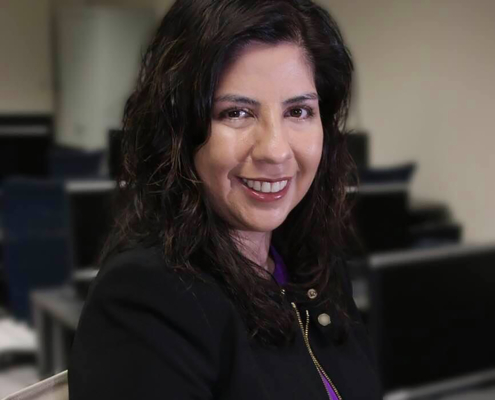Posts

Latinas in California Remain Invisible in Policymaking: UCLA Alumni and Researchers are Looking to Change That
The UCLA Latino Policy and Politics Initiative has supported…

UCLA Hollywood Diversity Report Receives Funding from CA State Budget
The UCLA Hollywood Diversity Report received a $250,000 allocation…

UCLA Social Sciences Dean’s Salon Presents “2021 Hollywood Diversity Report: Lessons Learned” on June 7
Darnell Hunt, Ph.D.
Dean, UCLA Division of Social Sciences
Professor…

UCLA’s Dr. Ana-Christina Ramón Awarded $100,000 as Inaugural Latino Film Institute Scholar
Academy Award®-nominated actor Edward James Olmos announced…

By All MEANS Necessary – New UCLA Report on Hollywood Diversity and Inclusion Practices
September 18, 2019
Diversity initiatives have become their…

